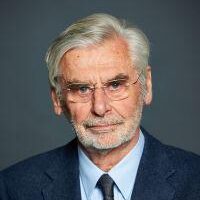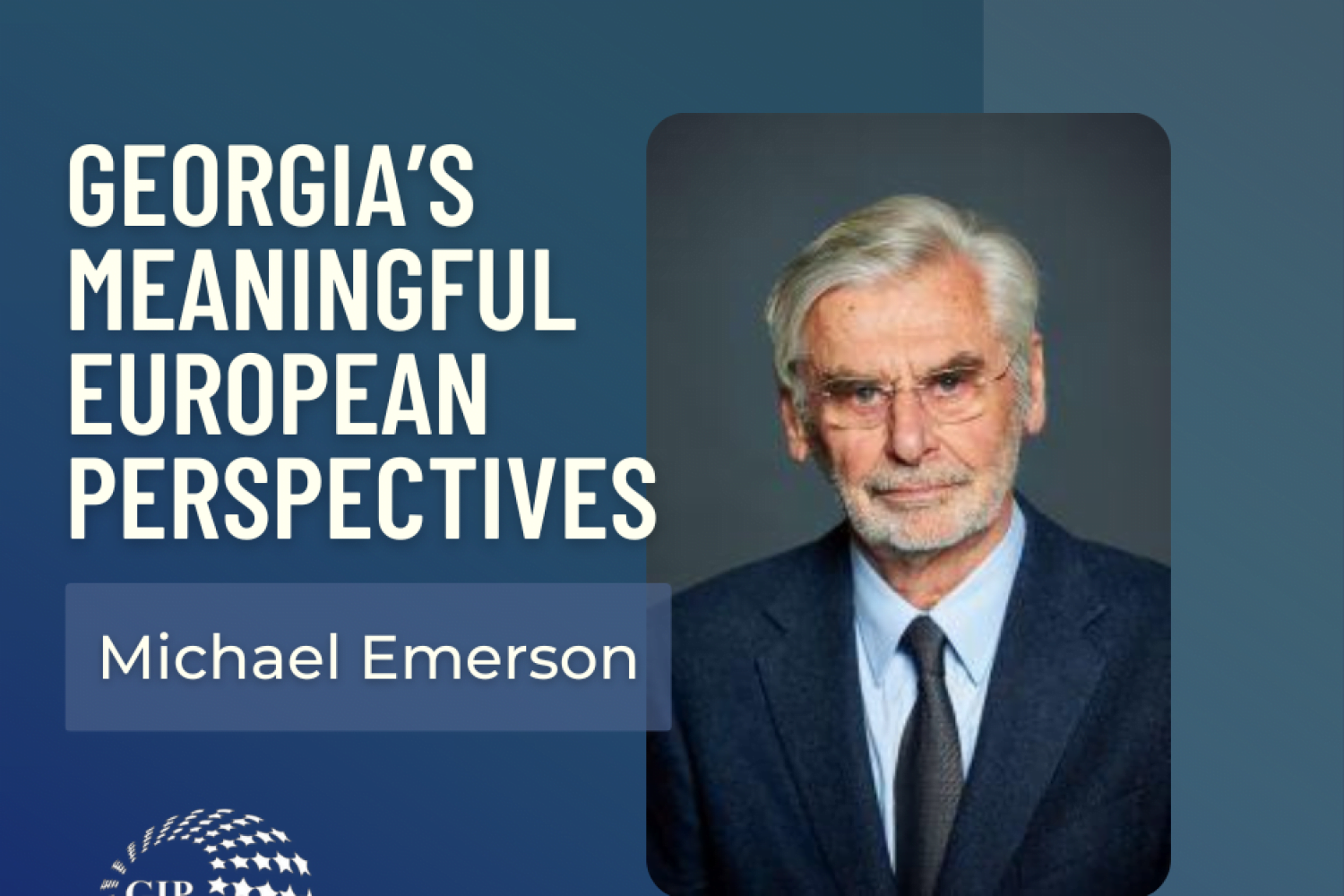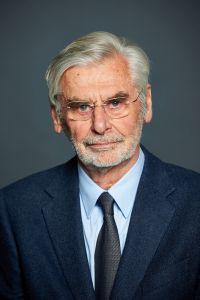Since June 2022 Georgia has what it had been seeking for years, a perspective to move on from its Association Agreement with the EU towards membership.
But it did not get the candidate status like Ukraine and Moldova, causing much anguished comment and controversy. The pro-Europeans were disappointed, and those who dislike the idea of European integration – be it traditionalist Orthodox pro-Georgians or pro-Russians – were able to say that this proved that Georgia was being rejected.
Georgian opinion leaders need to shape a realistic view of what lies ahead, which beyond the formalities of the EU’s enlargement policy requires sharing with the EU an understanding of the big uncertainties surrounding the future of the EU itself and of the wider Europe.
Next steps
Some next steps can be traced more of less clearly. In the next weeks the European Commission will say how they assess Ukraine, Moldova and Georgia to be progressing to meet the dozen or so conditions set in June 2022 for advancing along the accession process. A safe bet is to expect for all three states an assessment along the lines “much progress has been made, but not yet fully on all accounts”.
The following step then will be in October 2023 when the Commission presents its very detailed reports on all accession applicants: the Western Balkan six, the East European Trio, and Turkey. It is possible that for Ukraine and also maybe Moldova the Commission will recommend the opening of accession negotiations, thus going beyond the present candidate status.
For Georgia the sticking point inhibiting a move up to candidate status is its oligarchic leadership, with its history of electoral abuses and continuing imprisonment of opposition personalities, including former president Saakashvili and critical media journalists. By comparison both Ukraine and Moldova have governments and presidents of unquestionable democratic legitimacy. It is possible that the Commission might by October be sufficiently positively impressed by Georgia’s response to the conditions posed that it would recommend candidate status. However Georgia’s own political timetable also comes into play with its general elections lying ahead in 2024.
The EU may prefer to wait and see what this will produce, considering the implications of three different scenarios: i/correctly managed elections which the opposition wins, ii/ correctly managed elections which the Georgian Dream still wins, and iii/ rigged election which the Georgian Dream wins. In the first case candidate status could follow after a new government had shown itself to be well established; in the third case obviously not. The second case would test the EU, but if this scenario included also as a gesture of political goodwill towards the opposition the release from incarceration of various political prisoners, one can speculate that it might get a positive response, coupled to reminders about the increasingly mentioned ‘reversibility’ idea.
An electoral success by the current opposition is clearly dependent on the several parties coming together to form an electoral alliance and designation of a single, common leader. As of today, this is not yet happening. But very interestingly precisely this is happening in Georgia’s big neighbour Turkey, where the unified opposition may succeed to ousting Erdogan. If this happens it should be a source of inspiration for Georgia’s opposition parties.
Following this positive scenario, the further next step of opening accession negotiations could follow in due course, depending on various conditions, above all on the quality of democratic governance and the rule of law. But at this point the crystal ball gets very clouded. For example, would the process get stuck in the Balkan trap, where after 20 years of promises, the accession process does not really move for multiple reasons (Bulgaria’s vetoes over North Macedonia, continuing Serbia-Kosovo disagreements, dysfunctional governance in Bosnia, etc.)? In addition to real problems with the Balkan applicants it is obvious that various EU member states are to say the least hesitant over real commitment to further enlargements, starting with President Macron, and with others hiding behind him, but all holding veto powers over every next step.
European futures
At this point opinion leaders in Georgia, as in Ukraine and Moldova, have to join in the ongoing reflections on the future of Europe, both internally for the EU itself, as for the enlargement process. As countries with membership perspectives, they all are now stakeholders in the future of Europe, which involves far more fundamental political issues than the methodology of the enlargement process.
It is fair to say that support for the ongoing enlargement process has been seriously damaged by the current political tendencies of some of the acceding countries of the 2000s, notably Poland, Hungary and Bulgaria. The old core member states observe how Poland has deviated from independence of the judiciary, and Hungary from sound democratic practice, and how both – in order to protect their deviant political behaviour – have used their veto powers to block or threaten the integrity and functionality of the governance of the EU itself. And Bulgaria was for years been blocking North Macedonia’s accession process with its veto power for reasons that have nothing to do with EU policies.
In response to these very real political-institutional problems for the EU itself, one can discern a spectrum of at least four ideas.
A first position is that the problems of excessive and even abusive use of veto powers should be resolved by a large reduction or elimination of veto powers in favour of qualified majority voting in the Council. This should be the prerequisite for further enlargement. This position is broadly supported by European ‘federalists’, which includes in some degree at least Berlin and Paris as well as a majority in the European Parliament. On the other hand, extended qualified majority voting is explicitly opposed by no less than a dozen mainly smaller member states, who fear that this would excessive political dominance by France and Germany.
A second position, supported by the present writer, is that the veto problem for enlargement should be overcome by reforming the current enlargement methodology with a ‘Staged Accession’ process, with four stages for progressive integration. Under this, in the penultimate stage the newly acceding countries would for a substantial transition period be fully integrated the EU with the exception of veto powers in the Council. In the best case this transition period would give way to the first position above, with the reduction or elimination of veto powers in the EU’s governance overall.
A third position is that the above scenarios are too difficult to imagine them realistically being implemented. Therefore there should be created a new category of ‘Affiliated Membership’, which would build on the existing association agreements and include many of the same practical integration measures as under the Staged Accession proposal; but these states would remain excluded from all decision making powers in the Council. This would also in practice resemble the position of Norway, which in addition to full inclusion in the single market is also part of the Schengen area and is associated with many other sectoral initiatives of the EU.
A fourth position is that actually initiated by President Macron in the form of the new European Political Community, which is a formula for looser cooperation by all European states except Russia and Belarus, and has started a cycle of half-yearly summit meetings. It is still unknown how substantial this new body my become. It was initially criticized as proposing an alternative to enlargement, which was immediately denied, but these suspicions have not entirely evaporated.
Georgia, like all accession applicants, is now a stakeholder in this big debate, and should take part in it. The official positions of applicant states seem to be simply that the EU should implement the current enlargement methodology promptly in order to sustain the European orientations and commitments. This may be ignoring or pretending to ignore the real problems that have led to debate around the four positions mentioned. To be sure it is a very real argument to say that a tangible and politically significant progress with the enlargement process is needed to avoid disillusionment and crumbling of support for Europe.
On the other hand, it can be argued that opinion leaders in the applicant states would be on sounder ground if they moved on to a more nuanced position, saying essentially that they can see and share the big political issues for both the EU itself and the applicant countries surrounding the enlargement process. This understanding can go with unequivocal commitment to European core values of democracy, the fundamental freedoms and rule of law. It can be noted that these values are not exclusive in Europe to the EU, and include others such as Norway, Switzerland and the UK. They can debate at home and with EU institutions and civil society the pros and cons of different conceivable options, including the four options mentioned, as well as the conventional position of wishing for rapid progress under the current system.
A favourable starting point for this debate is that the civil societies and think tanks of Ukraine, Moldova and Georgia have reached a high level of expertise in both political and technical analysis, thank to their apprenticeship with their association agreements, whose contents largely prefigure accession negotiations. For Georgia this is in spite of the highly polarized state of debate among the political parties. To be sure, to enable public opinion to follow and join in this kind of complex debate is no easy thing, even among the oldest democracies of western Europe (for example the destructive Brexit, which was determined by populist emotion rather than rational calculation, as public opinion only now recognizes).
The fundamental and robust proposition can be this. In Georgia, as in Ukraine and Moldova, public opinion has largely moved beyond a post-Soviet condition. The younger generation do not even learn Russian as second language, but rather English which is the lingua franca of modern Europe. Above all the younger generation have no mindset of those having had to live under totalitarian regimes, and take as normal the fundamental freedoms of modern Europe.
To be practical for today, with Georgia having acquired a European perspective, it is now part of and stakeholder in modern Europe. The full maturing of its accession bid will have to go alongside the maturing of the EU’s own system for an unknown number of years. In the meantime, all doors are open for practical and progressive integration, in a system that is far richer than ‘in’ or ‘out’ arguments would suggest.
Associate Senior Research Fellow, CEPS




